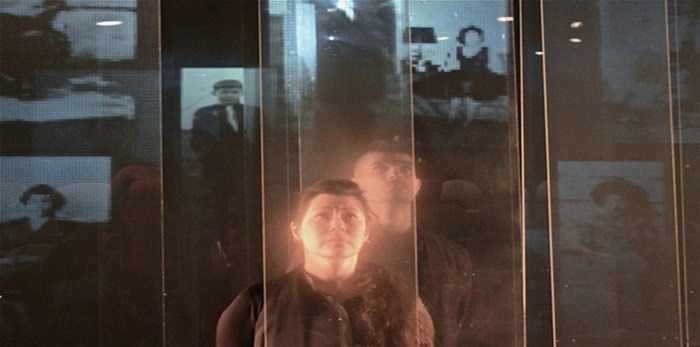The Montreal native does so with good reason. Tamiko Manning’s family members, second-generation Japanese-Canadians known as Nisei, and others in her community were interred during the Second World War. Alongside fellow Japanese-Canadian Matt Miwa, Tamiko Manning brings the award-winning play The Tashme Project: The Living Archives to Vancouver for the first time April 2 to 13 at the Firehall Arts Centre. Part performance piece, part living documentary, the 75-minute show weaves together stories from 20 interview subjects from across Canada who were just kids at the time of internment. “A lot of them had a lot of joy to express in those memories,” Tamiko Manning said. “As unjust as the internment was, they remember it being a community because they were all of a certain age. They were coming from small towns where the Japanese people were minorities and there was a lot of prejudice.” https://www.instagram.com/p/BqdBlJYhKz5/ Opened in 1942, the Tashme Internment Camp was located south of Hope and operated until 1946. It was specifically placed away from the coast, spanning 1,200 acres and sandwiched into an isolated valley in the mountains. At its height, Tashme was the largest internment camp in Canada and home to more than 2,600 people who were re-settled east of the Rockies after the war. In Tamiko Manning’s case, her family laid down roots in Farnham, just east of Montreal. Tamiko Manning said her family is one of a few in Farnham with Japanese roots and estimates only a couple hundred Japanese-Canadians live in Montreal proper. “We grew up very isolated because there were not very many Japanese families around,” she said. “At the end of the war, no other cities would accept Japanese people. That’s why they were so far east.” https://www.instagram.com/p/BqfiRmIBuGi/ The Tashme Project shifts between Tamiko Manning and Miwa portraying themselves and the Nisei interview subjects, all of whom are in their 70s, 80s and 90s and live in Toronto, Hamilton, Kingston, Ont., Montreal, Burnaby and Belleville, Ont. Some were hesitant to give their names when approached for interviews, but ultimately everyone agreed to participate and some commonalities were shared throughout. “Even though there was a lot of joy, there was a lot of pain and anger. During the interviews, no one ever broke. Everyone was happy and stoic,” Tamiko Manning said. The idea for the play took root in 2009 and after several first-draft, 20-minute readings The Tashme Project was stage bound in 2015. Readings have happened in Vancouver previously, but this incarnation of the production will be the first time it’s presented in full to local audiences. Those audiences include Nisei, but as Tamiko Manning puts it, they already know the story. Instead, her target audience is the third and fourth generation Japanese-Canadians who may not know what happened to their ancestors 75 years ago. “I think third and fourth generations are asking themselves, ‘What does it mean to be Japanese-Canadian?’” Tamiko Manning said. “And because intermarriage between Japanese and non-Japanese is so high, lots of people are half, a quarter or an eighth Japanese, so nobody looks Japanese anymore. But that doesn’t mean that you’re not and that doesn’t mean these stories don’t belong to you.” The Tashme Project: The Living Archives runs April 2 to 13. For ticket prices and show times, go to www.firehallartscentre.ca. @JohnKurucz The Tashme Project: The Living Archives runs April 2 to 13 at the Firehall Arts Centre.
The Tashme Project: The Living Archives runs April 2 to 13 at the Firehall Arts Centre.



